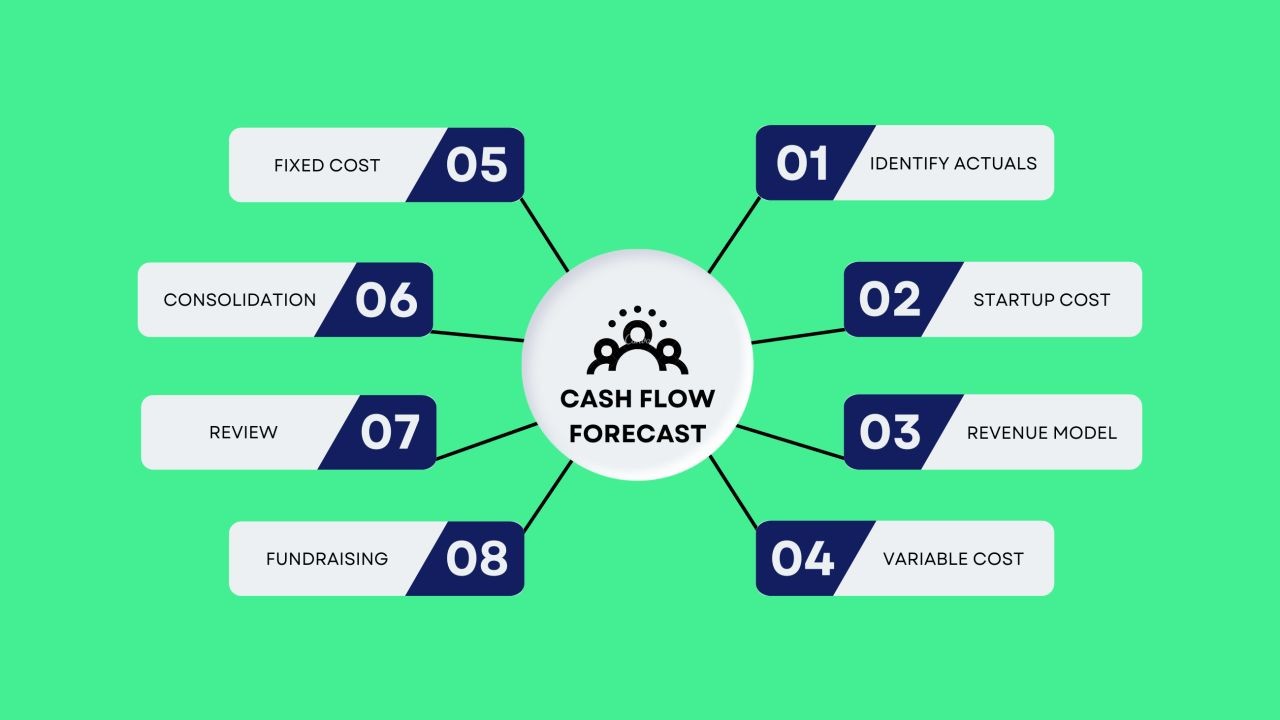New Zealand has become a beacon of digital transformation, earning a reputation as a nimble and innovative player in the global digital landscape. As businesses and governments worldwide grapple with the complexities of digitization, New Zealand's success story offers valuable lessons in leveraging technology for economic growth and societal advancement. This article explores the factors driving New Zealand's digital transformation, delves into real-world case studies, and provides actionable insights for businesses and policymakers looking to replicate this success.
🔹 How Digital Transformation Works in New Zealand
The digital transformation journey in New Zealand is underpinned by strategic government policies, vibrant tech ecosystems, and a focus on inclusivity. The Ministry of Business, Innovation and Employment (MBIE) has played a pivotal role in fostering an environment conducive to digital growth. Policies such as the Digital Economy Strategy and initiatives like the New Zealand Tech Incubator Programme have accelerated innovation and supported startups in scaling rapidly.
In the private sector, businesses have embraced digital tools to enhance customer experiences and operational efficiency. A 2023 report by Stats NZ highlighted that over 70% of Kiwi businesses have integrated digital technologies into their operations, resulting in a significant boost in productivity and competitiveness.
📖 Real-World Case Studies: Digital Transformation in Action
Case Study: Xero – Revolutionizing Accounting with Cloud Technology
Problem: Xero, a New Zealand-based accounting software company, faced challenges in providing real-time financial insights to small businesses. Traditional accounting methods were time-consuming and lacked transparency.
Action: Xero implemented a cloud-based accounting platform, allowing small businesses to access financial data in real time. Their approach involved leveraging AI and machine learning to automate routine tasks, freeing up resources for strategic decision-making.
Result: Xero's cloud solution led to a 35% increase in user adoption within a year and positioned the company as a global leader in the accounting software industry. Their success story underscores the transformative power of digital tools in traditional industries.
Takeaway: New Zealand businesses can replicate Xero's success by embracing cloud technology and focusing on user-centered design. The integration of AI and machine learning can significantly enhance operational efficiency and customer satisfaction. Case Study: New Zealand Tourism Board – Enhancing Visitor Experiences Through Digital Platforms
Problem: The New Zealand Tourism Board faced the challenge of attracting international visitors in an increasingly competitive market. Traditional marketing methods were limited in reach and engagement.
Action: By adopting digital marketing strategies and leveraging data analytics, the tourism board created personalized travel experiences for potential visitors. They utilized social media platforms and content marketing to engage with global audiences effectively.
Result: The digital campaign resulted in a 20% increase in international tourism in 2022, showcasing the effectiveness of digital platforms in reaching and engaging target audiences.
Takeaway: The tourism industry can benefit immensely from data-driven marketing strategies. By understanding customer preferences and behaviors, businesses can tailor their offerings, enhancing both engagement and conversion rates.
🔹 Expert Opinion & Thought Leadership
Dr. Emma Taylor, a digital transformation consultant based in Auckland, emphasizes the importance of a robust digital strategy. "New Zealand's success in digital transformation is not just about technology adoption; it's about creating a culture of innovation and agility. Businesses must prioritize digital literacy and continuously invest in upskilling their workforce to stay competitive."
Furthermore, a report by the Reserve Bank of New Zealand highlights the economic benefits of digital transformation, noting that digitalization could add $46 billion to the country's GDP by 2030. This underscores the critical role that digital tools play in driving economic growth and resilience.
📊 Data-Driven Analysis: The Impact of Digital Transformation
- According to Stats NZ, businesses that have embraced digital technologies report a 25% increase in productivity.
- The MBIE's Digital Nation report indicates that the technology sector contributes over $16 billion annually to New Zealand's economy.
- A study by the University of Auckland found that digital transformation has led to a 30% reduction in operational costs for SMEs.
These statistics highlight the tangible benefits of digital transformation for businesses across sectors. By leveraging technology, companies can enhance efficiency, reduce costs, and unlock new revenue streams.
🔹 Common Myths & Mistakes in Digital Transformation
Common Myths
Myth 1: "Digital transformation is only for tech companies."
Reality: Digital transformation is applicable across all industries. From agriculture to healthcare, businesses are leveraging digital tools to enhance efficiency and innovation.
Myth 2: "Digital transformation is a one-time project."
Reality: Digital transformation is an ongoing journey. It requires continuous adaptation and investment to keep up with technological advancements and market demands.
Myth 3: "Digital transformation is too expensive for small businesses."
Reality: While initial investments may be required, digital tools can lead to significant cost savings in the long run. Many affordable solutions are available that cater to SMEs.
Common Mistakes
Mistake 1: Ignoring cybersecurity risks.
Solution: Implement robust cybersecurity measures and conduct regular audits to protect sensitive data.
Mistake 2: Lack of employee training.
Solution: Invest in continuous upskilling and training programs to ensure employees are equipped to leverage new technologies.
Mistake 3: Focusing solely on technology without a clear strategy.
Solution: Develop a comprehensive digital strategy that aligns with business goals and customer needs.
🔹 Pros and Cons of Digital Transformation
Pros:
- Higher ROI: Businesses report a 30-50% increase in revenue post-transformation.
- Scalability: Digital solutions are easily adaptable for businesses of all sizes.
- Customer Engagement: Enhanced conversion rates and customer loyalty.
Cons:
- Initial Costs: Requires upfront investment before realizing significant returns.
- Resource Intensive: Ongoing monitoring and optimization are essential.
- Privacy Concerns: Data protection must be prioritized to maintain consumer trust.
🔹 Future Trends & Predictions
Looking ahead, the future of digital transformation in New Zealand is promising. By 2028, it is predicted that 40% of all transactions will be conducted digitally, driven by advancements in blockchain and fintech. AI and machine learning will continue to play a pivotal role in automating processes and enhancing decision-making capabilities.
Moreover, the integration of the Internet of Things (IoT) is expected to revolutionize industries such as agriculture and logistics, providing real-time insights and improving operational efficiency.
🔹 Conclusion
New Zealand's success in digital transformation serves as an inspiring blueprint for businesses and governments worldwide. By embracing innovation, fostering a culture of agility, and investing in digital capabilities, New Zealand has positioned itself as a leader in the digital age.
As the digital landscape continues to evolve, businesses must remain adaptable and forward-thinking. By prioritizing digital literacy, investing in technology, and developing robust strategies, organizations can unlock new opportunities for growth and success.
Are you ready to embark on your digital transformation journey? Share your thoughts and experiences in the comments below!
🔍 People Also Ask (FAQ)
How does digital transformation impact businesses in New Zealand?
NZ businesses leveraging digital transformation report 25%+ higher customer retention, according to Stats NZ. Adopting digital strategies can enhance engagement and revenue.
What are the biggest misconceptions about digital transformation?
One common myth is that digital transformation is only for tech companies. However, research from MBIE shows it benefits businesses across all industries.
What are the best strategies for implementing digital transformation?
Experts recommend starting with a clear digital strategy, followed by continuous employee training, and ensuring robust cybersecurity measures for long-term success.
What upcoming changes in New Zealand could affect digital transformation?
By 2026, policy updates in data protection could shift the digital transformation landscape—stay ahead by adopting secure and compliant digital solutions.
Who benefits the most from digital transformation?
Digital transformation benefits small businesses, large enterprises, and government entities, making it a strategic focus for organizations aiming for increased efficiency and competitiveness.
🔍 Related Search Queries
- New Zealand digital transformation success stories
- How digital transformation is changing NZ businesses
- Best digital tools for NZ small businesses
- Future of digital transformation in New Zealand
- Impact of digital transformation on NZ economy





































Benton Auto Experts Ltd
25 days ago